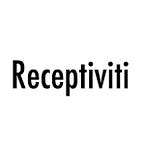The Leadership Psychology of Linda Yaccarino: A New Hope for Twitter?
Linda Yaccarino, well known in advertising circles, is transitioning from her role as Chairperson of Global Advertising and Partnerships at NBC Universal to top of the flock at Twitter. She is the first female Twitter CEO and the first person to assume command of the company after Elon Musk.
Touted as an exemplary leader, Yaccarino is often referred to as the “velvet hammer.” According to those who are acquainted with her, she is a competent and “seasoned executive” and a “consensus builder” who understands the significance of fostering inclusive workplace cultures. Yaccarino embodies the conventional traits of “agentic” leadership, which encompass assertiveness, decisiveness, prioritization of results, and driving innovation.. She also demonstrates a “communal” leadership style that’s typically associated with “soft” leadership skills that emphasize strong interpersonal connections and fostering a work environment that encourages creativity and collaboration.
To better understand Yaccarino’s leadership style and how she differs from Musk, we analyzed the degree to which she manifests agentic and communal leadership qualities. To do so, we compared her language from ten interviews conducted between 2016 and 2022 to Musk’s language from ten interviews between 2014 and 2023.
Agency — assertive, goal-oriented, self-confident leadership:
An agentic leadership style revolves around an individual’s assertiveness, competency, and the achievement their personal goals. It emphasizes taking charge, making decisions, and driving results. Although, agency has traditionally been perceived as requisite for effective leadership, today, companies, corporate boards, and those who study organizational effectiveness recognize the importance of balancing both agentic and communal styles (but more on that later).
To assess the degree to which Yaccarino and Musk demonstrate agentic leadership traits, we used the agentic measure from Receptiviti’s LIWC Extension framework. Our analysis shows that Yaccarino and Musk do not significantly differ on agency. Consistent with research that identifies agency as a valuable leadership trait, both Yaccarino and Musk use higher than average levels of agentic language that serves to highlight their ambitious and decisive approaches to leadership.
Communion — collaborative, empathetic, inclusive leadership:
Recent studies on effective leadership have shown that an agentic style alone is inadequate. Both industry and academic research increasingly point to communal characteristics as integral for effective leadership and the creation of a strong and productive company culture. After all, “soft” skills are now often referred to as “power” skills that are requisite for today’s progressive work environments. Communal leadership, sometimes referred to as servant leadership, stresses collaboration, empathy, and the well-being of others. Communal leaders emphasize building strong relationships, fostering a sense of community, and serving the needs of the team or organization.
To determine the degree to which Yaccarino and Musk demonstrate communal leadership qualities, we used the communal measure from Receptiviti’s LIWC Extension framework. Our findings show that Yaccarino is significantly more communal than Musk, which is also evidenced by first-hand accounts of her skills with managing workplace relationships, particularly those involving difficult personalities. In contrast, Musk’s lower levels of communion align with reports of his volatility, as well as our previous research that highlights his neurotic and less agreeable disposition.
Interpersonal Circumplex Model of Leadership
To uncover more nuanced insights on Yaccarino and Musk, we used Receptiviti’s Interpersonal Circumplex Model that utilizes agentic and communal dimensions, to clearly illustrate how varying levels of these two constructs combine to create a variety of very different possible leadership styles.
Musk’s higher agency and lower communion scores suggest that he is an authoritative and directive leader who is focused more on his personal achievement than he is on fostering a collaborative work environment. Note that these results are similar to the findings in our earlier analysis of his leadership style based on transcripts of Tesla earnings calls, which further demonstrates that different sources of language data are equally effective when evaluating leadership styles and capabilities.
Effective leadership relies on agency, especially during times of uncertainty when agentic behaviors, such as assertiveness and decisiveness are required. However, “unmitigated agency,” or authoritative and directive leaders, like Musk, who score high on self-possessing agentic traits but low on interpersonal communal traits, often pose challenges for the companies that they lead. For example, Musk’s “uncaring” approach to mass layoffs may have helped Twitter avoid bankruptcy, but it came at a significant cost to the well-being of Twitter’s workforce.
In contrast, Yaccarino’s higher scores on agency and communion suggest that she balances assertiveness and decisiveness with an ability to foster relationships and a collaborative culture. Yaccarino’s balanced approach to leadership is more likely to promote a positive, productive, and innovative working environment at Twitter, which may also help the improve psychological safety at the company which was significantly eroded during Musk’s reign.
What lies in store for Twitter?
With Yaccarino taking the helm, our findings should spark some renewed optimism for Twitter. Inspirational communal leaders like Yaccarino engender workplace cultures that create psychological safety, welcome diverse perspectives, and as a result, foster creativity and innovation. Yaccarino’s balanced leadership style is what the company needs to repair the damage incurred by Musk’s purely agentic leadership style. After years of tumult, Yaccarino appears to be the type of leader who can bring Twitter’s flock together and rebuild a culture of collaboration, strength, and synergy.
